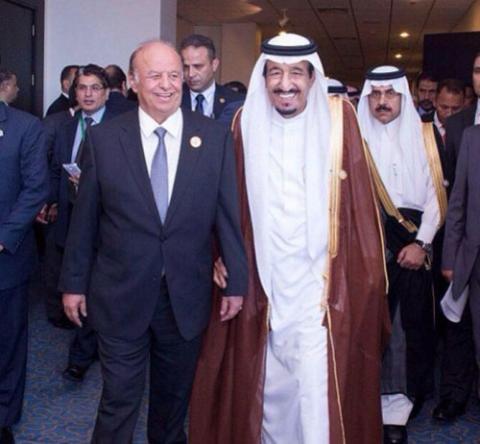Yemenis Say Drone Killed U.S. Friends


WASHINGTON (CNS) - The "willful blindness" of the U.S. military drone program killed a Yemeni imam who preached against al-Qaida, and his police officer brother, the men's family claims in Federal Court.
Salem and Waleed bin Ali Jaber were meeting with three unknown men in the Yemeni village of Khashamir on Aug. 29, 2012, when four Hellfire missiles fired from a U.S. drone killed them instantly, the family claims in their June 7 lawsuit.
They believe the drone strike targeted the three unknown men, who came to the village to see Salem after he gave an anti-al-Qaida sermon in the village. The family says it not clear that even these men were appropriate targets for such an attack.
The family sued President Barack Obama, former Defense Secretary Leon Panetta, former CIA Director David Petraeus and three unknown federal employees.
"The August 29th strike and subsequent U.S. drone operations fundamentally changed the conditions of local life," the complaint states. "The community was thrown into a state of anger, despair and frustration over the loss of two highly regarded men. That loss was compounded by the traumatizing aftermath of a large blast area strewn with body parts of five men."
The strike, the day after a family wedding in the "quiet" village in Eastern Yemen, was witnessed by several family members who saw the missiles kill their relatives, the family says.
They believe it was a "signature" strike, in which the military targets a person not because he is a known terrorist but because he followed a pattern of behavior that suggested he could be.
The Department of Justice declined to comment.
The three men targeted, who were unknown to the villagers, were driving an old SUV when they arrived in town asking for Salem, according to the complaint. The attack also blew the roofs off houses and the windows out of the town mosque.
"Residents, including children, can hear the drones, and unsurprisingly have come to live in ongoing fear of sudden death by drone," the complaint states.
Salem's and Waleed's father Faisal bin Ali Jaber sued on behalf of his son's estates. He says he sought justice from the Yemeni and U.S. governments, and that though he secured the equivalent of $55,000 for each family in 2014 from the Yemeni government and another $100,000 offered in a plastic bag as "condolences," the United States has not acknowledged responsibility for the attack.
The family claims the strike was an unlawful extrajudicial killing that violated international laws of war because the United States was not at war with Yemen when the missiles struck.
Though the strikes occurred in Yemen, probably directed from a military base in Nevada, the family's attorney Robert Palmer said the case was filed in Washington because the president, and the Departments of Justice and Defense "authorized, approved and supervised" the drone program,.
Palmer said the largest obstacle in court is likely to be that the drone program is a political question the court should not decide.
The family seeks a declaration of rights, in part because any request for a cash award would make it difficult to have the case heard, Palmer said. He said the family is concerned most of all about "vindicating the character, legacy and legitimacy" of Salem and Waleed.

Aden — Yemen Airways has announced new updates to its ticket cancellation (VOID) policy, introducing financial penalties on travel agents in…

Geneva – The United States announced that Yemen will not be among the countries benefiting from a new $2 billion funding pledge for United Na…

Paris — The French humanitarian organization Acted announced that it has delivered cash assistance to nearly 89,000 people affected by displa…